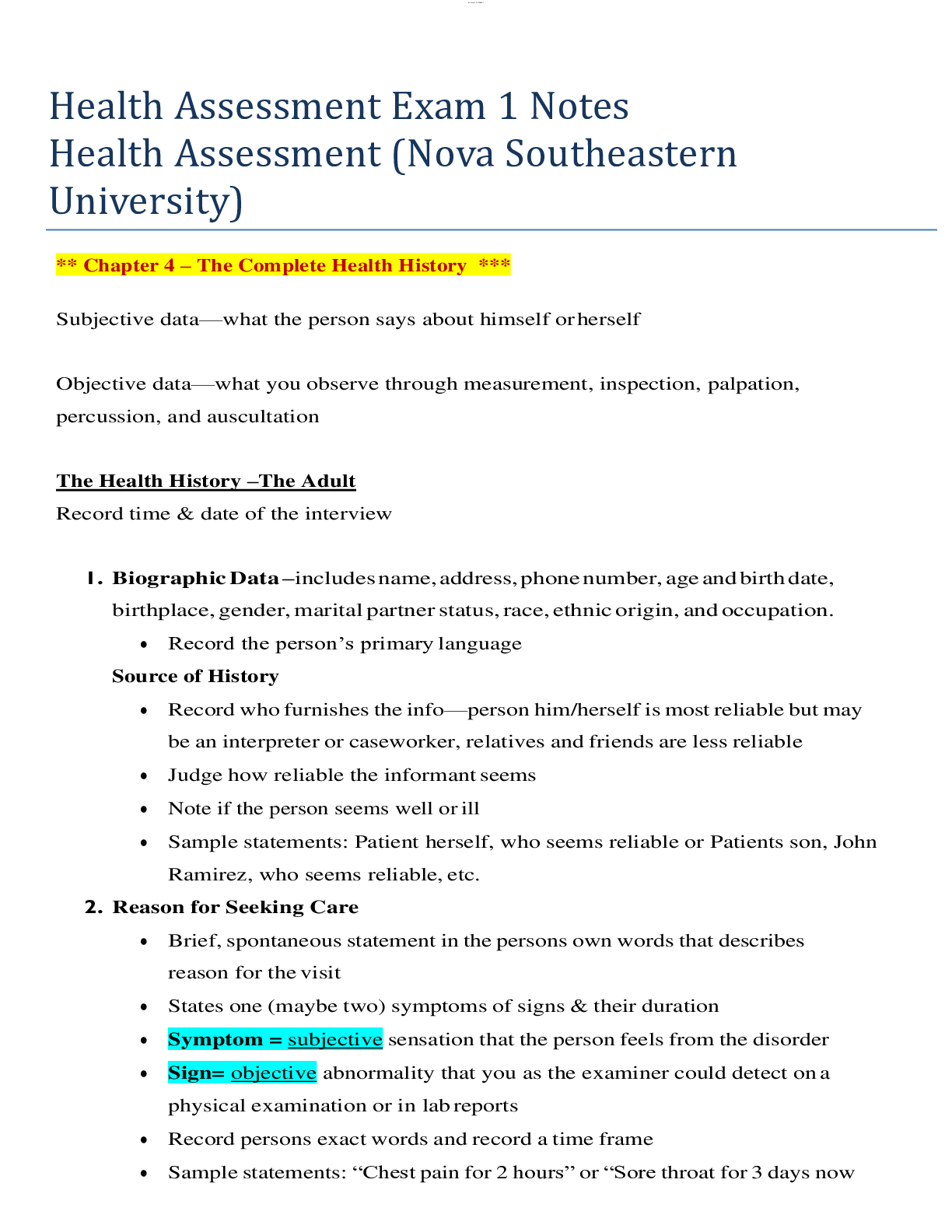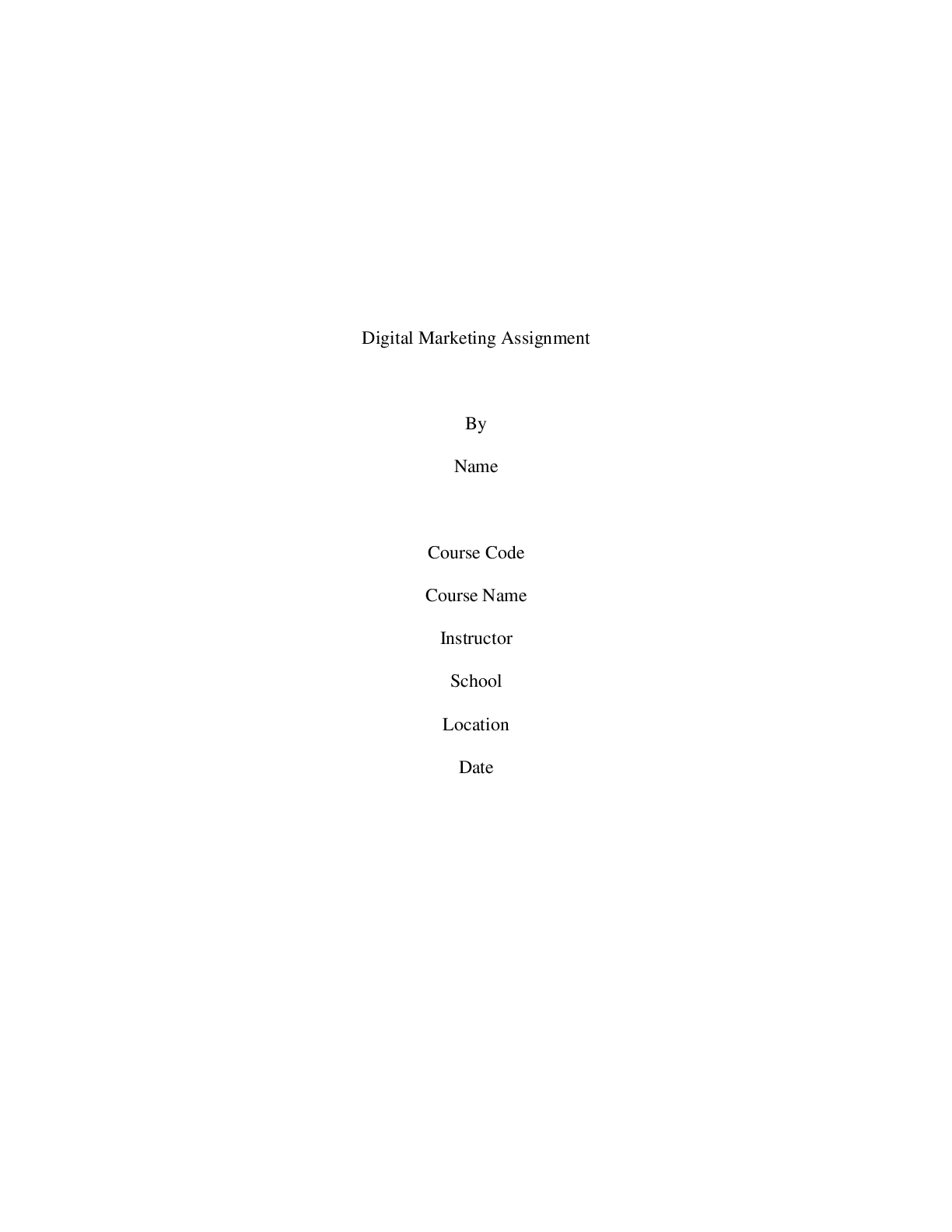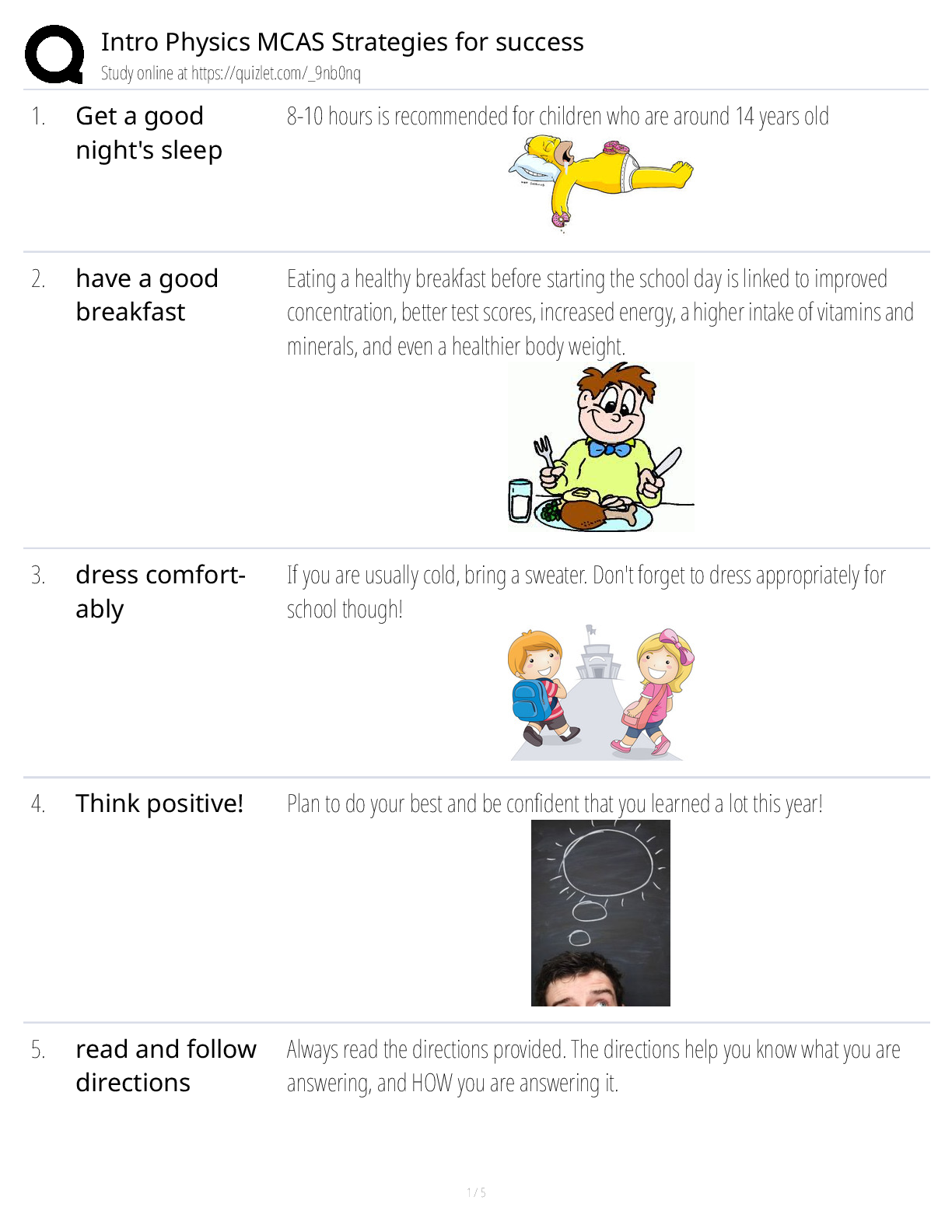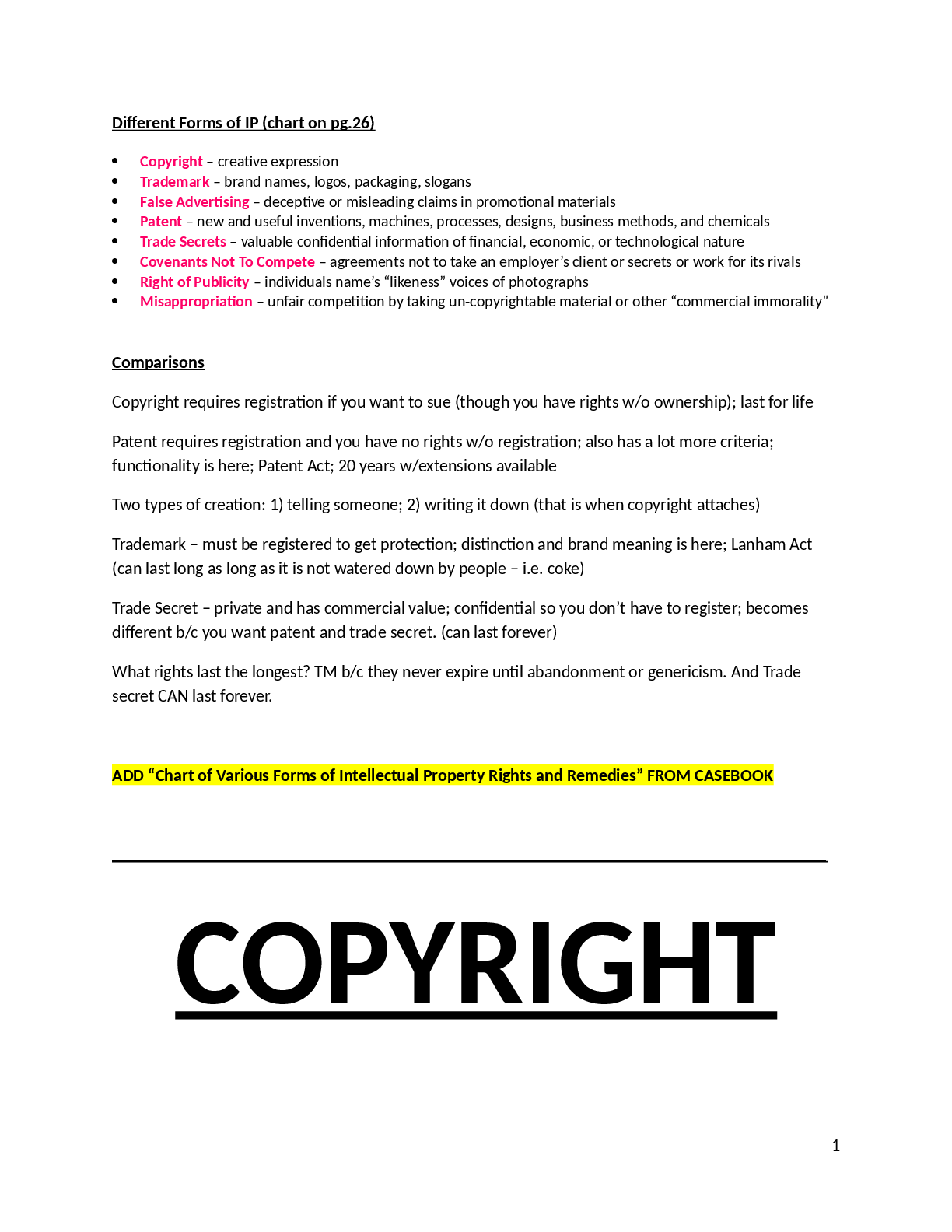Education > Class Notes > ESOC 300: Digital Storytelling Journal. All explained. Graded A (All)
ESOC 300: Digital Storytelling Journal. All explained. Graded A
Document Content and Description Below
ESOC 300: Digital Storytelling Journal 1 Due 1/27 to “Journal 1” d2l folder Directions: Read “Terrors” by Kiese Laymon and “Annotating the First Page of the Navajo Dictionary” by Dani ... elle Geller. You can find all these readings in the “Reading Assignments” section of the Unit 1 module of d2l. Then answer each question with at least a short paragraph. 1. In “The Basics of Good Writing in Any Form,” Brenda Miller and Susanne Paola explain the importance of specific and concrete details. a. Identify at least one specific and concrete detail from “Terrors” and explain what you think it adds to the meaning of the story. b. Then identify at least one specific and concrete detail from “Annotating the First Page of the Navajo Dictionary,” and explain what you think it adds to the meaning of the story. 2. Characterization is an important aspect of any story. How would you describe the main character in “Terrors” (Kiese Laymon himself)? How would you describe the main character in “Annotating the First Page of the Navajo Dictionary” (Danielle Geller herself? What do we know about each of the them? (When answering this question, base your answer only on what is included in the story, rather than anything you’ve read or already know about the author.) 3. In “Storytelling for the 21st Century,” Bryan Alexander defines a story as “a sequence of content, anchored on a problem, which engages that audience with emotion and meaning” (13). a. What is the “problem” (or problems) in “Terrors”? b. What is the problem (or problems) in “Annotating the First Page of the Navajo Dictionary”? c. Do you think that both authors “engag[e] the audience with emotion and meaning”? Explain why or why not. 4. In “Annotating the First Page of the Navajo-English Dictionary,” Danielle Geller uses a concrete object (the Navajo-English dictionary) to tell a story about her family and cultural history: she presents her story as a sequence of “annotations” to the dictionary. Why do you think she chose to do this? What does this technique add to the story? In other words, how does it add interest and/or complication to the story? 5. Think of a piece of writing you enjoy and admire. This could be a book, poem, podcast, film script, twitter post, blog, an essay, etc. Do you feel “hailed by or connected to” that story in some way (Alexander 12)? How and why? Then, identify 2-3 sentences from that story that you particularly admire, and paste it in as part of your answer. Then, in a few sentences, explain what you admire about that piece of writing. Please also bring those sentences with you to class on Monday (either in print or digital form). [Show More]
Last updated: 3 years ago
Preview 1 out of 5 pages

Buy this document to get the full access instantly
Instant Download Access after purchase
Buy NowInstant download
We Accept:

Reviews( 0 )
$7.00
Can't find what you want? Try our AI powered Search
Document information
Connected school, study & course
About the document
Uploaded On
Jan 29, 2020
Number of pages
5
Written in
All
Additional information
This document has been written for:
Uploaded
Jan 29, 2020
Downloads
0
Views
186




